
Find Help
More Items From Ergsy search
-

How does aspirin work to reduce cancer risk?
Relevance: 100%
-
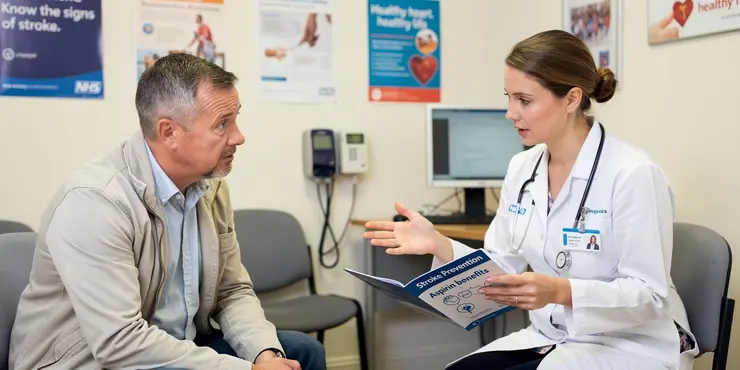
Can aspirin help in reducing the risk of strokes?
Relevance: 79%
-

Can aspirin stop colorectal cancer?
Relevance: 76%
-
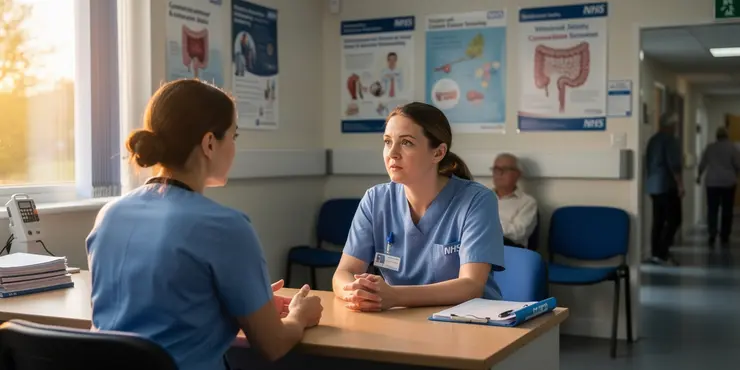
Is aspirin recommended for everyone to prevent colorectal cancer?
Relevance: 75%
-
Is aspirin effective in preventing other types of cancer?
Relevance: 74%
-
Has the FDA approved aspirin for cancer prevention?
Relevance: 74%
-
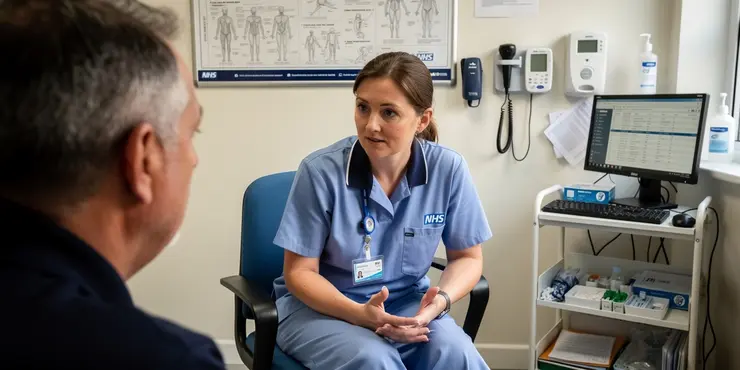
Has aspirin been proven to cure colorectal cancer?
Relevance: 73%
-
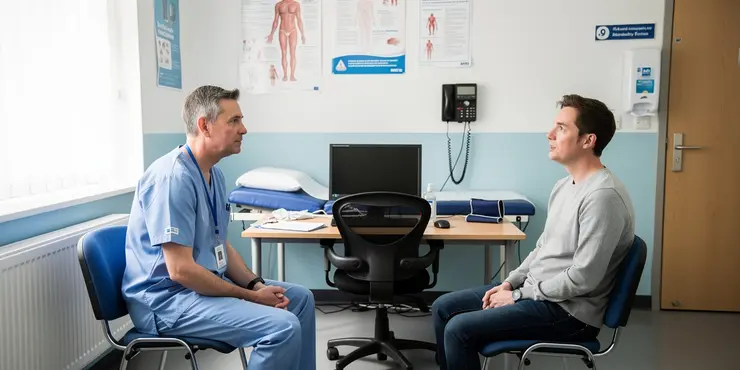
What should I do if I'm considering aspirin for cancer prevention?
Relevance: 73%
-
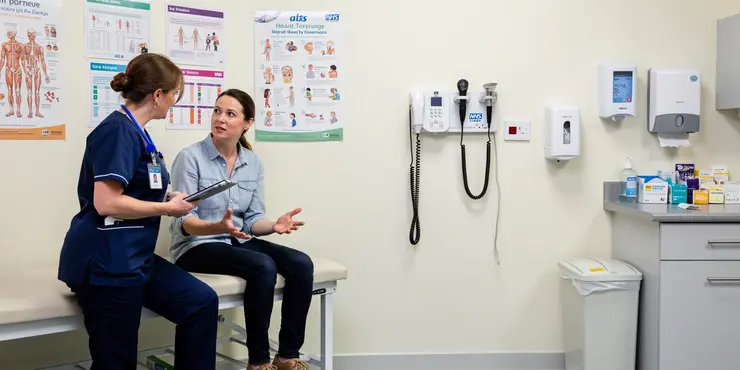
What dosage of aspirin is considered effective for cancer prevention?
Relevance: 72%
-
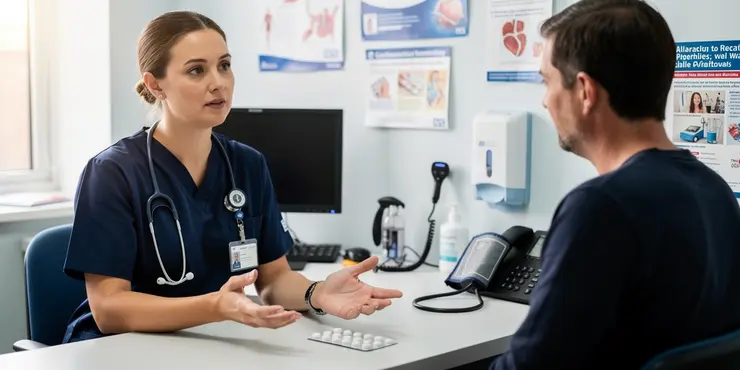
Should people with a family history of colorectal cancer take aspirin?
Relevance: 70%
-
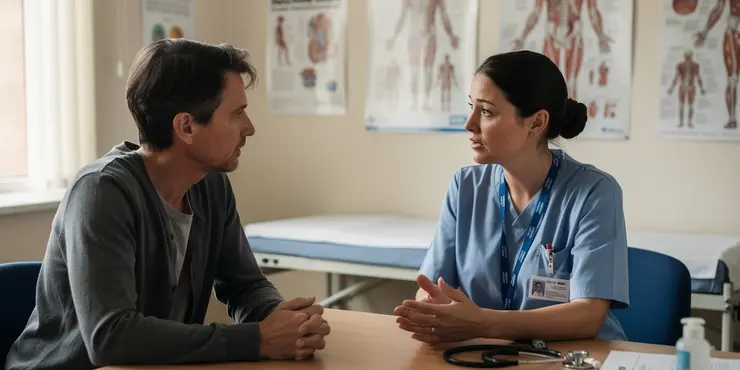
What do health organizations say about aspirin and cancer prevention?
Relevance: 70%
-
How long do studies suggest taking aspirin for cancer prevention?
Relevance: 69%
-
Is aspirin more effective for certain age groups in preventing colorectal cancer?
Relevance: 68%
-
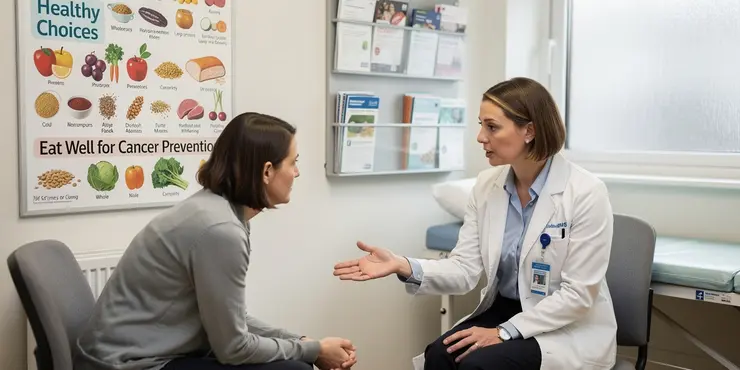
Can lifestyle changes help reduce bowel cancer risk?
Relevance: 57%
-
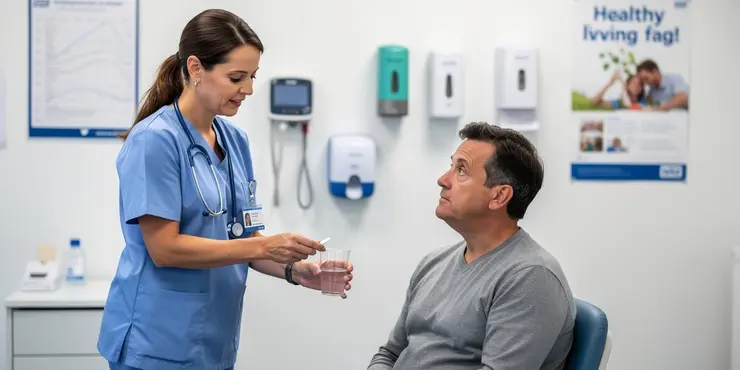
What is Aspirin?
Relevance: 55%
-
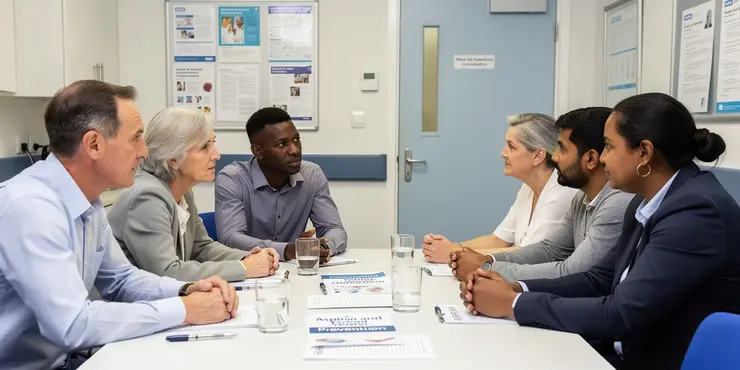
Can aspirin prevent colorectal cancer?
Relevance: 53%
-
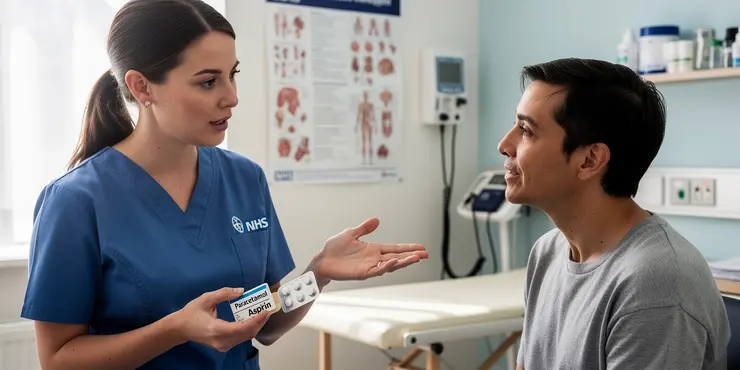
Is Paracetamol the same as Aspirin?
Relevance: 53%
-

Are Aspirin and Ibuprofen the same?
Relevance: 52%
-
Can aspirin interact with other medications?
Relevance: 52%
-
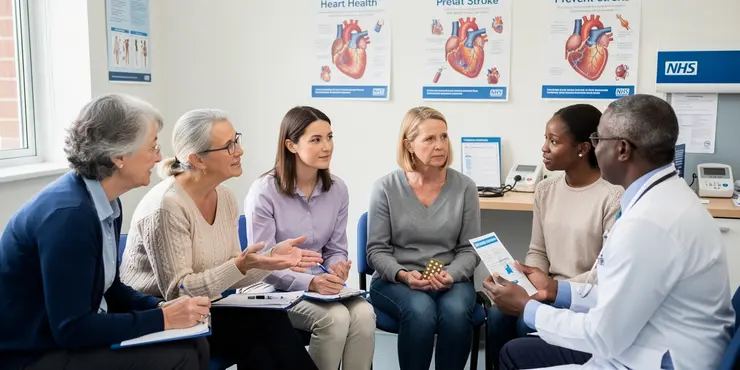
What drugs can reduce the risk of heart-attack and strokes?
Relevance: 51%
-
Are there ongoing studies about aspirin and colorectal cancer?
Relevance: 51%
-
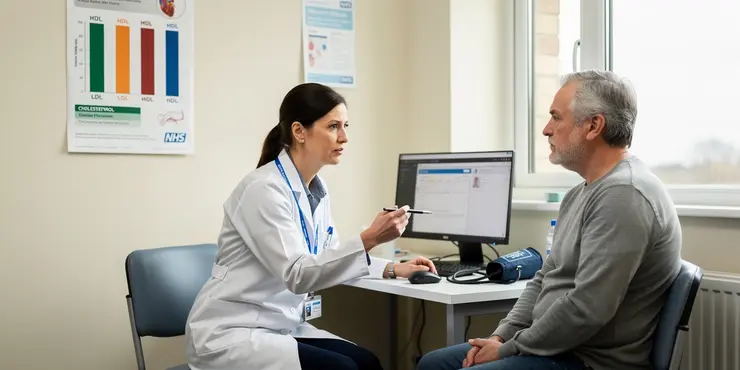
What drugs are commonly prescribed to reduce the risk of heart attacks?
Relevance: 50%
-
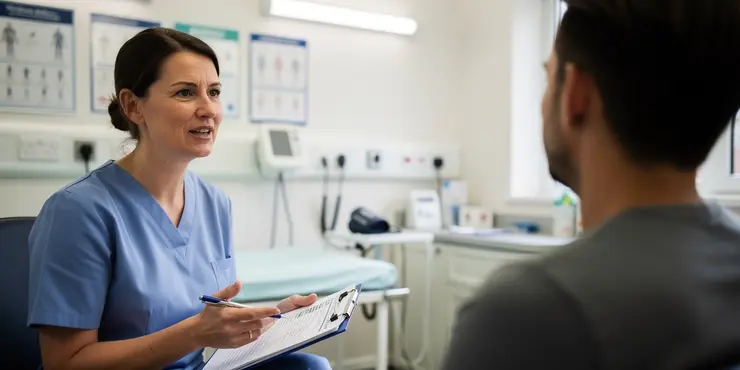
What are the side effects of Aspirin?
Relevance: 49%
-
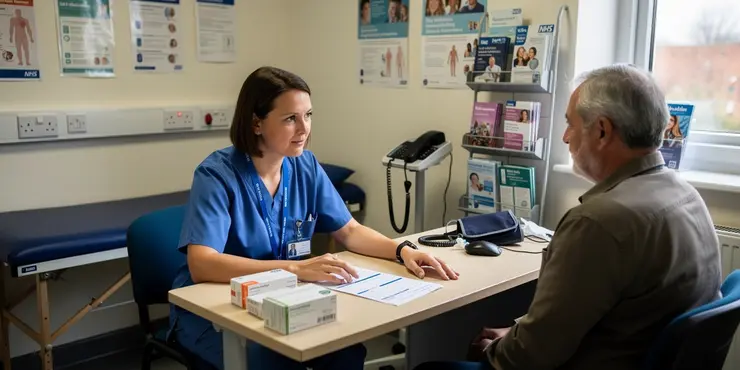
Can I take Aspirin and Ibuprofen together?
Relevance: 48%
-
What is the difference between aspirin, paracetamol, and ibuprofen?
Relevance: 48%
-
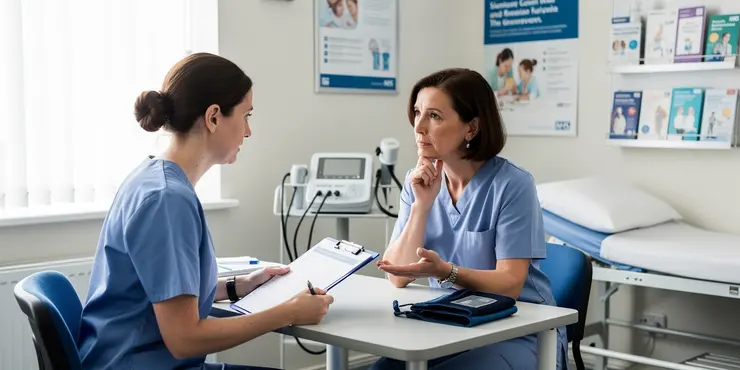
What is the difference between Aspirin, Paracetamol, and Ibuprofen?
Relevance: 48%
-

Are there risks associated with taking aspirin regularly?
Relevance: 48%
-
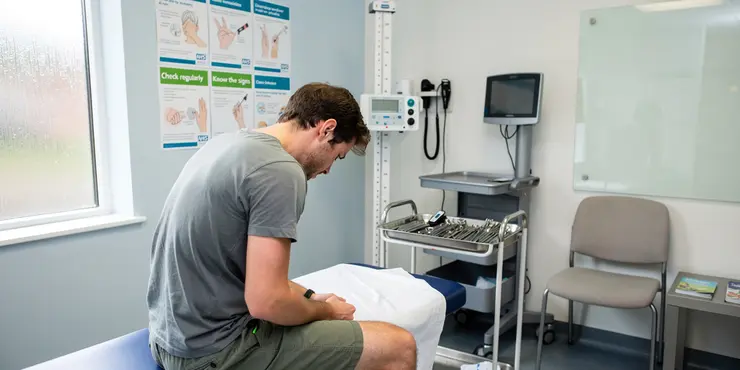
Who is at risk for testicular cancer?
Relevance: 47%
-
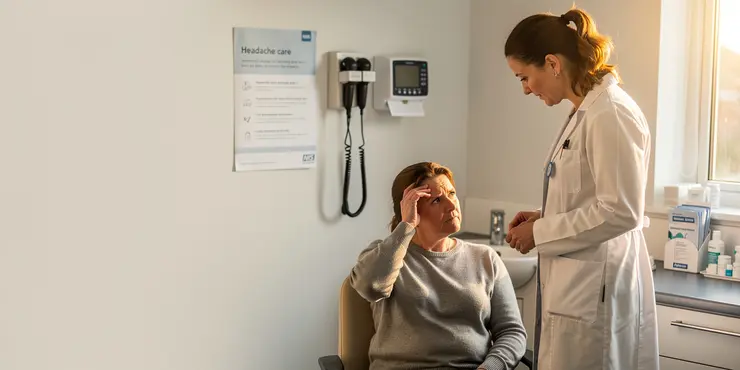
Which one is better for headaches: Aspirin or Paracetamol?
Relevance: 47%
-
Should individuals with certain medical conditions avoid aspirin?
Relevance: 46%
-
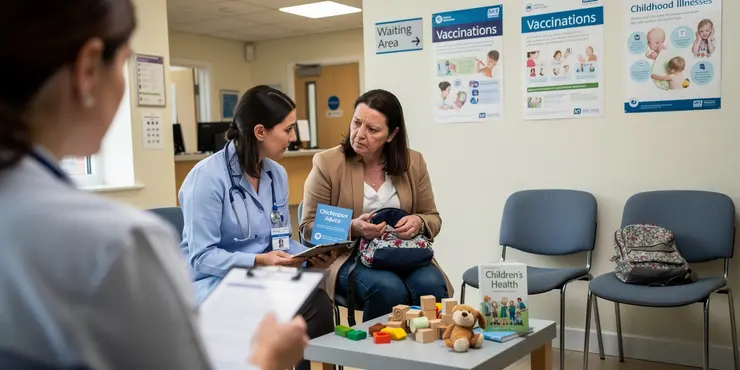
Is it safe to use aspirin to treat chickenpox symptoms?
Relevance: 46%
-
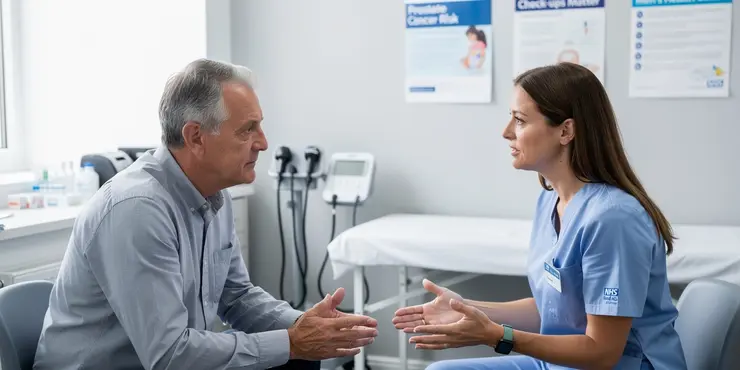
Am I more at risk of prostate cancer?
Relevance: 46%
-
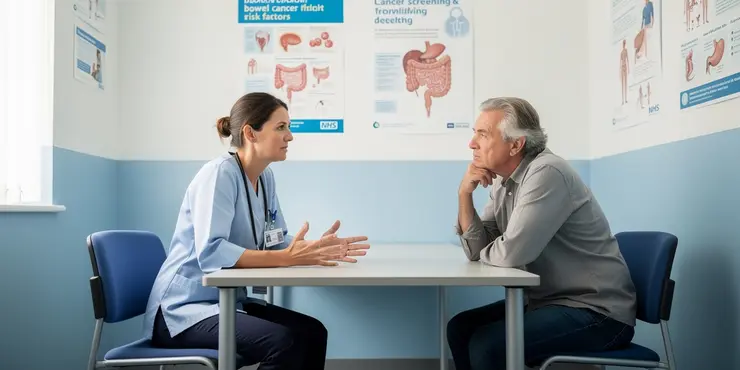
What are the risk factors for bowel cancer?
Relevance: 46%
-
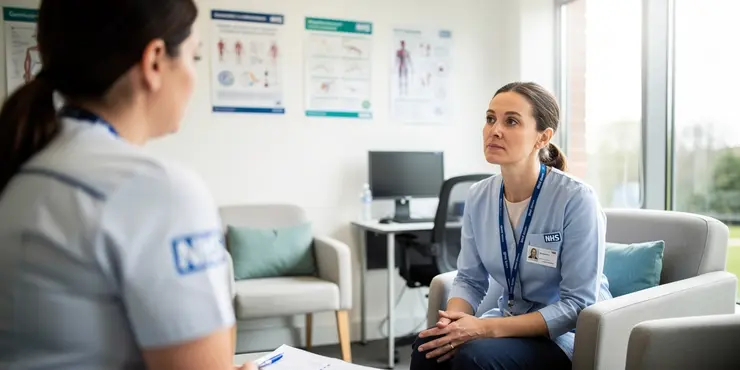
Is genetic screening available for cancer risk?
Relevance: 45%
-
Does tanning on sunbeds reduce the risk of future sunburns?
Relevance: 43%
-
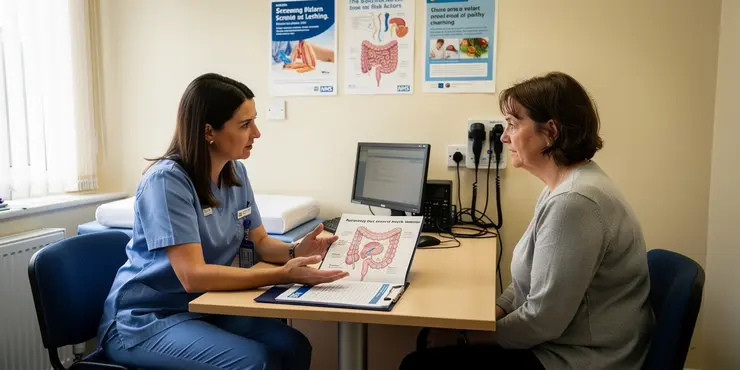
What factors increase my risk of colorectal cancer?
Relevance: 43%
-
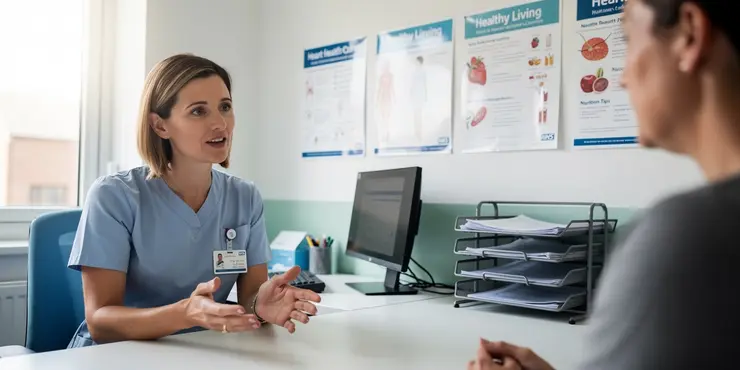
What lifestyle changes can help lower the risk of bowel cancer?
Relevance: 42%
-
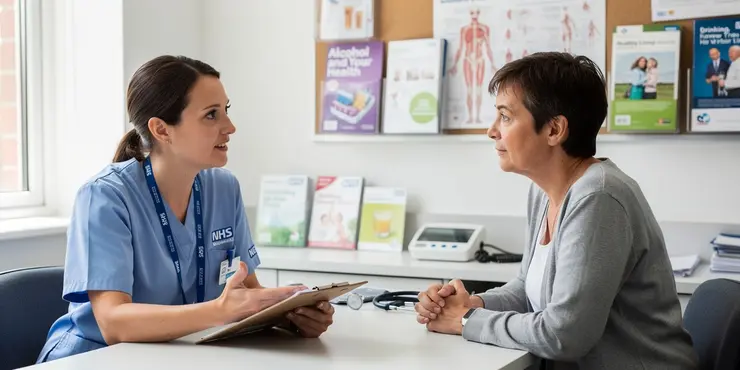
What role does alcohol consumption play in bowel cancer risk?
Relevance: 42%
-
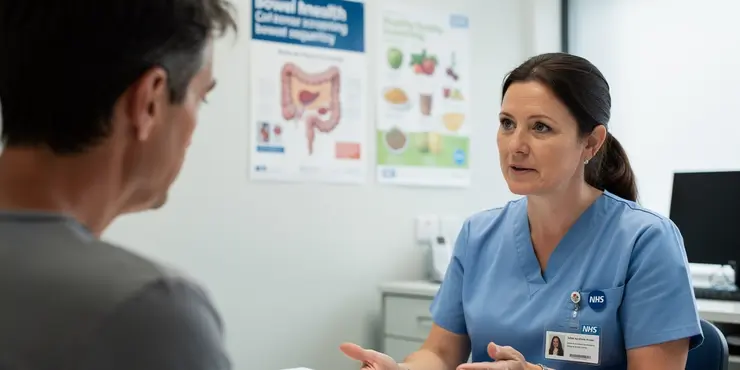
What role does diet play in the risk of developing bowel cancer?
Relevance: 42%
-
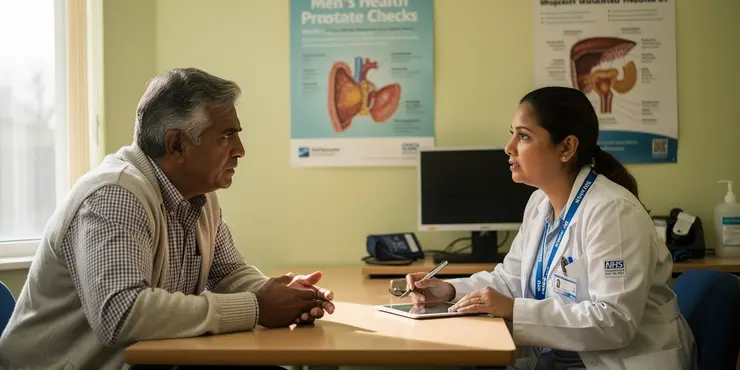
Does BPH increase the risk of prostate cancer?
Relevance: 42%
Introduction to Aspirin and Cancer Risk
Aspirin, a common pain reliever and anti-inflammatory medication, is known for its ability to reduce fever, relieve pain, and combat inflammation. In recent years, researchers have been investigating aspirin's potential role in reducing the risk of certain types of cancer. Understanding how aspirin works to mitigate cancer risk involves exploring its biochemical properties and effects on the body.
The Mechanism of Action
Aspirin is classified as a non-steroidal anti-inflammatory drug (NSAID). Its primary mechanism of action is the inhibition of cyclooxygenase (COX) enzymes, specifically COX-1 and COX-2. These enzymes are responsible for producing prostaglandins, which are lipid compounds that perform several functions, including promoting inflammation and pain. By inhibiting these enzymes, aspirin reduces the production of prostaglandins, thus diminishing inflammation and related symptoms.
Inflammation is a critical factor in the development and progression of many cancers. Chronic inflammation can lead to DNA damage, promote tumour growth, and encourage metastasis. By reducing inflammation, aspirin may subsequently lower the risk of cancer development.
Aspirin's Influence on Cancer Cells
Apart from reducing inflammation, aspirin also influences cancer risk through other biological pathways. Research suggests that aspirin can induce apoptosis, or programmed cell death, in certain cancer cells. This effect helps in halting the proliferation of these harmful cells. Additionally, aspirin appears to inhibit angiogenesis, the process by which new blood vessels form to supply tumours with nutrients and oxygen, thereby slowing tumour growth.
There is also evidence that aspirin impacts platelet function. Platelets can protect circulating tumour cells in the bloodstream, facilitating their spread to other parts of the body. By inhibiting platelet aggregation, aspirin may reduce the likelihood of metastasis, further contributing to its cancer-preventive properties.
Evidence from Clinical Studies
Numerous studies have supported the link between aspirin use and a reduced risk of certain cancers, particularly colorectal cancer. Long-term aspirin use has been associated with a significant decrease in the incidence of this type of cancer. The effects are more pronounced with prolonged use and are observed to be more effective when started at a younger age.
However, it is crucial to note that the benefits of aspirin use must be weighed against the risks, as aspirin can cause gastrointestinal bleeding and other complications. Therefore, it is essential for individuals to consult with healthcare professionals before starting aspirin for cancer prevention.
Conclusion
While the exact mechanisms through which aspirin reduces cancer risk are not fully understood, its ability to inhibit cyclooxygenase enzymes, reduce inflammation, induce apoptosis, and affect platelet function are believed to play significant roles. Ongoing research continues to uncover more insights into this widely-used medication and its potential benefits in cancer prevention.
Introduction to Aspirin and Cancer Risk
Aspirin is a medicine that helps reduce pain, swelling, and fever. Scientists are studying if aspirin can also help lower the risk of getting some kinds of cancer. To understand how aspirin might lower cancer risk, we need to know how it works in the body.
How Aspirin Works
Aspirin is a type of medicine called an NSAID, which stands for non-steroidal anti-inflammatory drug. It blocks special chemicals in the body called COX-1 and COX-2. These chemicals make other things called prostaglandins that cause pain and swelling. When aspirin blocks these chemicals, it helps reduce swelling and pain.
Swelling in the body can make it easier for cancer to start and grow. Swelling can damage important parts of our cells, helping cancer to spread. By reducing swelling, aspirin might help lower the chance of getting cancer.
How Aspirin Affects Cancer Cells
Besides reducing swelling, aspirin can also affect cancer cells in other ways. It can make cancer cells die, which helps stop them from growing and spreading. Also, aspirin can slow down the formation of new blood vessels that cancer needs to grow. This way, aspirin can help slow down tumor growth.
Platelets are tiny cells in our blood that help with clotting. They can also help cancer cells move around the body. Aspirin stops platelets from sticking together, which might stop cancer cells from spreading to other parts of the body.
What Studies Show
Many studies show that aspirin can help lower the risk of some cancers, like bowel cancer. Taking aspirin for a long time can make it less likely to get some types of cancer. The benefits are greater if people start taking it earlier in life.
But, taking aspirin can also cause problems, like bleeding in the stomach. This is why it’s very important to talk to a doctor before starting to take aspirin to help prevent cancer.
Conclusion
We do not yet fully understand how aspirin reduces cancer risk, but it might work by stopping certain chemicals, reducing swelling, making cancer cells die, and affecting platelets. Scientists are still learning more about how aspirin can help prevent cancer.
Frequently Asked Questions
What is aspirin?
Aspirin is a non-steroidal anti-inflammatory drug (NSAID) commonly used as a pain reliever and fever reducer.
How does aspirin work in the body?
Aspirin works by inhibiting the enzyme cyclooxygenase, which in turn reduces the production of prostaglandins, substances that mediate inflammation and pain.
What is the common use of aspirin?
Aspirin is commonly used to alleviate pain, reduce fever, and prevent blood clots by thinning the blood.
How is aspirin thought to reduce cancer risk?
Aspirin may reduce cancer risk by inhibiting cyclooxygenase enzymes, which lowers inflammation and may slow the growth of cancer cells.
Which type of cancer is aspirin most associated with reducing risk?
Aspirin is most commonly associated with reducing the risk of colorectal cancer.
Is there evidence supporting aspirin's role in cancer prevention?
Yes, several studies suggest that regular aspirin use may lower the risk of certain cancers, particularly colorectal cancer.
How does aspirin affect colorectal cancer risk?
Aspirin may reduce colorectal cancer risk by decreasing inflammation in the gastrointestinal tract, slowing cancer cell proliferation, and possibly inducing cancer cell apoptosis.
What is the role of prostaglandins in cancer?
Prostaglandins can promote tumor growth, suppress immune response, and increase cancer stem cell survival, which aspirin helps to counteract by reducing prostaglandin production.
Can aspirin also prevent other types of cancer?
There is some evidence to suggest that aspirin might lower the risk of other cancers, such as esophageal, breast, and stomach cancers, but more research is needed.
At what dose is aspirin believed to reduce cancer risk?
Low doses of aspirin, such as 81 mg daily, are often recommended in studies for cancer risk reduction, but the optimal dose can vary and should be determined by a healthcare provider.
How long does one need to take aspirin to see a reduction in cancer risk?
Some studies suggest that taking aspirin for five years or more is associated with a significant reduction in colorectal cancer risk.
Are there risks associated with taking aspirin to reduce cancer risk?
Yes, long-term aspirin use can cause side effects, including gastrointestinal bleeding, ulcers, and an increased risk of hemorrhagic stroke.
Who should consider taking aspirin for cancer prevention?
Individuals with a high risk of colorectal cancer or those with a family history of cancer might consider aspirin for prevention, but only after consulting with a healthcare provider.
Is aspirin recommended for everyone to reduce cancer risk?
No, aspirin is not recommended for everyone due to potential side effects. People should consult their doctor to discuss their personal risk factors and benefits.
What factors influence the decision to use aspirin for cancer prevention?
Factors such as age, personal and family medical history, risk factors for cardiovascular disease, bleeding risks, and overall health influence this decision.
Has the FDA approved aspirin for cancer prevention?
As of now, the FDA has not approved aspirin specifically for cancer prevention, although it is approved for reducing heart attack and stroke risk.
What ongoing research is being conducted on aspirin and cancer?
Ongoing research is exploring the mechanisms of aspirin's effect on cancer, identifying the most effective doses, and understanding which populations benefit the most.
Can aspirin be combined with other treatments to improve cancer prevention?
Some studies are investigating the potential benefits of using aspirin in combination with other drugs or lifestyle changes to enhance cancer prevention.
What should individuals do before starting aspirin for cancer prevention?
Individuals should consult with their healthcare provider to discuss the potential benefits and risks based on their personal health profile.
Where can I find more information about aspirin and cancer prevention?
You can find more information through credible sources such as the American Cancer Society, Mayo Clinic, or National Institutes of Health websites.
What is aspirin?
Aspirin is a medicine. It helps when you have a headache or feel pain. It can also make a fever go down.
Some people take aspirin to keep their hearts healthy.
If you are not sure about taking aspirin, ask a grown-up for help. You can also ask a doctor or a nurse.
Remember, only take medicine if a grown-up says it is okay.
Aspirin is a medicine that helps when you have pain or a fever. It is not a kind of steroid and it helps to stop swelling.
How does aspirin help your body?
Aspirin is a medicine. It helps when you feel pain or have a fever.
Aspirin stops your body from making things called chemicals. These chemicals can cause pain and swelling.
If you are in pain, aspirin can help you feel better. But remember, always ask an adult before taking medicine.
Tools to help understand:
- Ask someone to read with you.
- Use pictures to learn more about how aspirin works.
- Watch videos made for kids about medicines.
Aspirin helps with pain and swelling. It stops something in your body called an enzyme. This enzyme makes things that cause pain and swelling. By stopping the enzyme, aspirin helps you feel better.
If reading is hard, you can try using audiobooks or reading apps that read out loud. Finger tracking can also help you follow the words.
What is aspirin used for?
Aspirin is a medicine. People use it to stop pain, like a headache. It can also help if you have a fever, which means your body is too warm. Some people take aspirin to keep their heart healthy.
If you find reading hard, you can ask someone to help you. You can also use a read-aloud tool on a computer or device.
Aspirin helps with pain and makes you feel better if you have a fever. It also stops blood clots from forming by making the blood thinner.
How does aspirin help lower cancer risk?
Aspirin is a medicine. It can help keep people from getting sick. Some doctors think taking aspirin can help with cancer.
People think aspirin works by stopping bad cells from growing. It may help protect your body.
If you want to know more, you can talk to a doctor or nurse. They can help you understand. You can also use tools like pictures or videos to learn.
Aspirin can help lower the chance of getting cancer. It works by stopping certain chemicals in the body that cause swelling. This might help stop cancer cells from growing.
What kind of cancer can aspirin help prevent?
It's important to use simple words and short sentences to help everyone understand better. You can use tools like picture books or videos to learn more about health.Aspirin is a medicine that can help lower the chances of getting bowel cancer. Bowel cancer is a kind of cancer that starts in the tummy area.
Does aspirin help stop cancer?
Scientists are checking if taking aspirin can help stop cancer. They are still studying this to understand it better.
If you want to know more, you can:
- Ask a doctor or nurse.
- Use picture books or videos about health.
- Talk with a family member or friend for support.
Yes, taking aspirin regularly might help lower the chance of getting some types of cancer, like bowel cancer.
How does aspirin change the risk of bowel cancer?
Aspirin is a medicine that can lower the chance of getting bowel cancer.
If you have questions, talk to your doctor or a nurse.
Using a picture or drawing might help you understand better.
Aspirin might help lower the chance of getting bowel cancer. It does this by reducing swelling in the stomach and intestines, slowing down how fast cancer cells grow, and sometimes helping to kill cancer cells.
If you're finding it hard to understand, try reading out loud or using a ruler to guide you under each line. These methods can make reading easier!
What do prostaglandins do in cancer?
Prostaglandins are chemicals in the body. They do different jobs.
Sometimes, prostaglandins can help cancer grow. They can make tumors bigger and harder to fight.
Doctors and scientists study prostaglandins to find out how to stop them from helping cancer.
If you want to learn more, you can:
- Ask a doctor or nurse for simple explanations.
- Use a picture book about the body and cancer.
- Watch easy videos about cancer for children.
Prostaglandins are chemicals in the body. They can make tumors grow, weaken the immune system, and help cancer cells live. Aspirin helps by lowering the amount of prostaglandins.
Can aspirin help stop other kinds of cancer?
Aspirin is a medicine. Some people wonder if it can help stop cancer. Cancer is when bad cells grow in the body.
If you want to know more, you can:
- Ask a doctor or nurse.
- Look at websites that give good health information.
- Read books about health in the library.
Aspirin might help stop some other types of cancer, like throat, breast, and stomach cancer. But scientists need to study more to be sure.
How much aspirin might help lower the chance of getting cancer?
Taking a small aspirin pill every day, like one that is 81 mg, might help stop cancer from starting. But, the right amount can be different for each person. A doctor is the best person to ask about how much you should take.
How long do you need to take aspirin to help lower the chance of getting cancer?
Aspirin might help lower the risk of getting cancer. But you have to take it for a long time. Talk to a doctor to know more. You can also use simple tools like pictures or videos to understand better.
Some studies say taking aspirin for five years or more might help lower the risk of getting colon cancer.
Can taking aspirin to lower cancer risk be dangerous?
Yes, taking aspirin for a long time can cause problems. It can make your stomach hurt, cause sores inside your stomach, and there is a bigger chance of bleeding in the brain.
If this is hard to read, ask someone to read it with you. You can also try reading it out loud or breaking it into smaller parts.
Who should think about taking aspirin to stop cancer?
If you have a high chance of getting bowel cancer or if your family members had cancer, you might think about taking aspirin to help stop cancer. But you should talk to a doctor first.
Can everyone take aspirin to lower the chance of getting cancer?
Aspirin might help some people lower their chance of getting cancer. But it is not good for everyone.
Always talk to a doctor before taking aspirin. They can tell you what is best for you.
If you have questions, ask a grown-up for help. They can explain things you don't understand.
No, not everyone should take aspirin because it can cause harm. People should talk to their doctor to see if it's right for them.
Why do people decide to use aspirin to help stop cancer?
Things like how old you are, your health, your family’s health, and risks for heart problems or bleeding help doctors decide what is best for you.
Can you take aspirin to stop cancer? Did the FDA say it's okay?
Right now, the FDA has not said it's okay to use aspirin to stop cancer. But, it is okay to use aspirin to help stop heart attacks and strokes.
What are scientists studying about aspirin and cancer?
Scientists are trying to find out how aspirin might help with cancer.
They want to know if taking aspirin can stop cancer from starting.
They also want to discover if aspirin can help people who already have cancer.
Scientists do lots of tests. They use computers, look at data, and work with people.
They do this to make sure aspirin is safe and can really help against cancer.
Some scientists use special tools like pictures and videos to explain their research.
This helps people understand the science better.
People are still studying how aspirin works to help with cancer. They want to find out the best amounts to use and who it helps the most.
Can aspirin be used with other medicines to help stop cancer?
Sometimes doctors use medicines like aspirin to help stop cancer. They might combine aspirin with other treatments. This can be more helpful than using aspirin alone.
If you want to understand better, you can:
- Ask a nurse or doctor to explain it to you.
- Use pictures or videos about aspirin and cancer to learn more.
- Talk about it with someone you trust.
Some scientists are looking at how taking aspirin with other medicine or changing the way you live might help stop cancer.
What to do before taking aspirin to stop cancer?
Aspirin can help prevent cancer, but it's important to be careful before you start. Here’s what you can do:
- Talk to a Doctor: Always see a doctor before starting aspirin. They will let you know if it's safe for you.
- Know the Risks: Understand that aspirin can sometimes cause problems, like an upset tummy.
- Check your Health: Make sure your health is okay to take aspirin regularly.
- Get Help: Use picture charts or get a friend to help you understand more.
Talk to your doctor. They can help you understand what is good and bad for your health.
Where can I learn more about aspirin and cancer prevention?
Do you want to know how aspirin helps stop cancer? Here are some easy ways to find out more:
- Ask a doctor: A doctor can tell you how aspirin works and if it’s good for you.
- Visit a library: Books and magazines can have helpful information.
- Look online: Websites like health or medical sites can help you learn more. Make sure the information is from a place you can trust.
If reading is hard, try these tips:
- Find videos about aspirin and cancer. Videos are easy to watch and listen to.
- Ask someone you trust to read and explain the information to you.
- Look for pictures or charts that show how aspirin can help.
You can find more information from good places like the American Cancer Society, Mayo Clinic, or National Institutes of Health websites.
Useful Links
This website offers general information and is not a substitute for professional advice.
Always seek guidance from qualified professionals.
If you have any medical concerns or need urgent help, contact a healthcare professional or emergency services immediately.
Some of this content was generated with AI assistance. We’ve done our best to keep it accurate, helpful, and human-friendly.
- Ergsy carfully checks the information in the videos we provide here.
- Videos shown by Youtube after a video has completed, have NOT been reviewed by ERGSY.
- To view, click the arrow in centre of video.
- Most of the videos you find here will have subtitles and/or closed captions available.
- You may need to turn these on, and choose your preferred language.
- Go to the video you'd like to watch.
- If closed captions (CC) are available, settings will be visible on the bottom right of the video player.
- To turn on Captions, click settings .
- To turn off Captions, click settings again.
More Items From Ergsy search
-

How does aspirin work to reduce cancer risk?
Relevance: 100%
-

Can aspirin help in reducing the risk of strokes?
Relevance: 79%
-

Can aspirin stop colorectal cancer?
Relevance: 76%
-

Is aspirin recommended for everyone to prevent colorectal cancer?
Relevance: 75%
-
Is aspirin effective in preventing other types of cancer?
Relevance: 74%
-
Has the FDA approved aspirin for cancer prevention?
Relevance: 74%
-

Has aspirin been proven to cure colorectal cancer?
Relevance: 73%
-

What should I do if I'm considering aspirin for cancer prevention?
Relevance: 73%
-

What dosage of aspirin is considered effective for cancer prevention?
Relevance: 72%
-

Should people with a family history of colorectal cancer take aspirin?
Relevance: 70%
-

What do health organizations say about aspirin and cancer prevention?
Relevance: 70%
-
How long do studies suggest taking aspirin for cancer prevention?
Relevance: 69%
-
Is aspirin more effective for certain age groups in preventing colorectal cancer?
Relevance: 68%
-

Can lifestyle changes help reduce bowel cancer risk?
Relevance: 57%
-

What is Aspirin?
Relevance: 55%
-

Can aspirin prevent colorectal cancer?
Relevance: 53%
-

Is Paracetamol the same as Aspirin?
Relevance: 53%
-

Are Aspirin and Ibuprofen the same?
Relevance: 52%
-
Can aspirin interact with other medications?
Relevance: 52%
-

What drugs can reduce the risk of heart-attack and strokes?
Relevance: 51%
-
Are there ongoing studies about aspirin and colorectal cancer?
Relevance: 51%
-

What drugs are commonly prescribed to reduce the risk of heart attacks?
Relevance: 50%
-

What are the side effects of Aspirin?
Relevance: 49%
-

Can I take Aspirin and Ibuprofen together?
Relevance: 48%
-
What is the difference between aspirin, paracetamol, and ibuprofen?
Relevance: 48%
-

What is the difference between Aspirin, Paracetamol, and Ibuprofen?
Relevance: 48%
-

Are there risks associated with taking aspirin regularly?
Relevance: 48%
-

Who is at risk for testicular cancer?
Relevance: 47%
-

Which one is better for headaches: Aspirin or Paracetamol?
Relevance: 47%
-
Should individuals with certain medical conditions avoid aspirin?
Relevance: 46%
-

Is it safe to use aspirin to treat chickenpox symptoms?
Relevance: 46%
-

Am I more at risk of prostate cancer?
Relevance: 46%
-

What are the risk factors for bowel cancer?
Relevance: 46%
-

Is genetic screening available for cancer risk?
Relevance: 45%
-
Does tanning on sunbeds reduce the risk of future sunburns?
Relevance: 43%
-

What factors increase my risk of colorectal cancer?
Relevance: 43%
-

What lifestyle changes can help lower the risk of bowel cancer?
Relevance: 42%
-

What role does alcohol consumption play in bowel cancer risk?
Relevance: 42%
-

What role does diet play in the risk of developing bowel cancer?
Relevance: 42%
-

Does BPH increase the risk of prostate cancer?
Relevance: 42%


